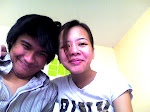 Fidel Ramos ( 1992-1998 )
Fidel Ramos ( 1992-1998 )Condition of the Philippines:
-Civil liberty has just been restored.
-Nation was in trouble
-Philippines were once the school of Southeast Asia but neighboring countries have one by one gotten beyond.
-There were repeated assaults from insurgents and rebels.
-There was a need for people empowerment, not only in their political rights but also in economic opportunities.
-People speak out against old politics.-People reaffirmed their adherence to the secular ideal (Church and State separate but collaborating, coexistent but each supreme in its own domain).
Primary problems:
-Neighboring countries have outdone the Philippines.
-Philippine economy should be nursed back to health and propel it to growth.
-Repeated assaults from rebels.
Promises in the Election:
-Civic order restoration
-So that businesses can run, workers can create wealth, liberty can flourish.
-Mandated to continue the democratic reforms gained by Aquino.
-Make politics serve the nation – not just families, friends, factions
-“I will continue to reach out to all the groups and factions making up the political community. As early as possible, I will consult with the leaders of the Senate and the House of Representatives to work out the priorities of the legislative agenda.”
-Call on mutinous soldiers and radical insurgents to give up their armed struggle.
-Work with Congress in fashioning an amnesty policy that will enable errant reformists to re-enter civil society.
-Ask Congress to convene itself as a Constituent Assembly to amend the Constitution.
-Government will work hand-in-hand with non government organization and people's organizations to expand the life choices of the poorest
-Get the entire economy to generate productive employment
-“My administration will prove that government is not unavoidably corrupt — and that bureaucracy is not necessarily ineffective.”
-“In foreign relations, we shall strive to strengthen ties with old friends and trading partners and we shall endeavor to develop new friendships.”
Primary Programs:
-Deregulation
-Open the country to foreign investments
-Focus on agriculture – because almost half of all workers still live on it and it is the foundation of industrial modernization.
-More realistic Agrarian Reform Law-Global competitiveness
-Mastermind and implemented a comprehensive Social Reform Agenda (SRA)– addressed the long-standing problem of poverty: jobs and livelihood, health, education, skills training, housing, environmental protection, children and the youth, elderly and the handicapped, agrarian reform, and access to equal opportunity.
-Encouraged privatization of public entities, to include the modernization of public infrastructure through and an expanded Build-Operate-Transfer (BOT) law.-Centerpiece program: Philippines 2000 which aims to uplift the Philippines as a newly industrialized country by the year 2000.
Results of Programs:
-Put and end to the power crisis that crippled Filipino homes and industries for two years.
-Philippine economy recovered dramatically during the years 1993-1997
-Average income of the Filipino family grew more during his administration than in the two decades.
-Achieved a peace agreement with military rebels and the secessionist Moro National Liberation Front (MNLF) for which he won for the Philippines the coveted 1997 UNESCO Peace Award – the first for Asians.
-Broken oligopolies that have controlled key sectors in shipping, telecommunication and banking.
-The Philippines became known as the “Asian Tiger”.
-He was widely credited for reviving the country’s economy.
Controversies:
-a large number of cabinet members were former military officials, attempts to override the Supreme Court
-creation of a coalition that eliminated nearly all opposition in Congress
-a number of other acts which have been dubbed unconstitutional, in some cases, no proper vote was held in the Senate-total war policy in dealing with communist rebels
-the militarization of various parts of the country, resulting in human rights violations at the hands of military-speculation of the re-imposition of martial law.
-made a move to amend the 1987 Constitution in order give Ramos the chance to run for re-election.






No comments:
Post a Comment